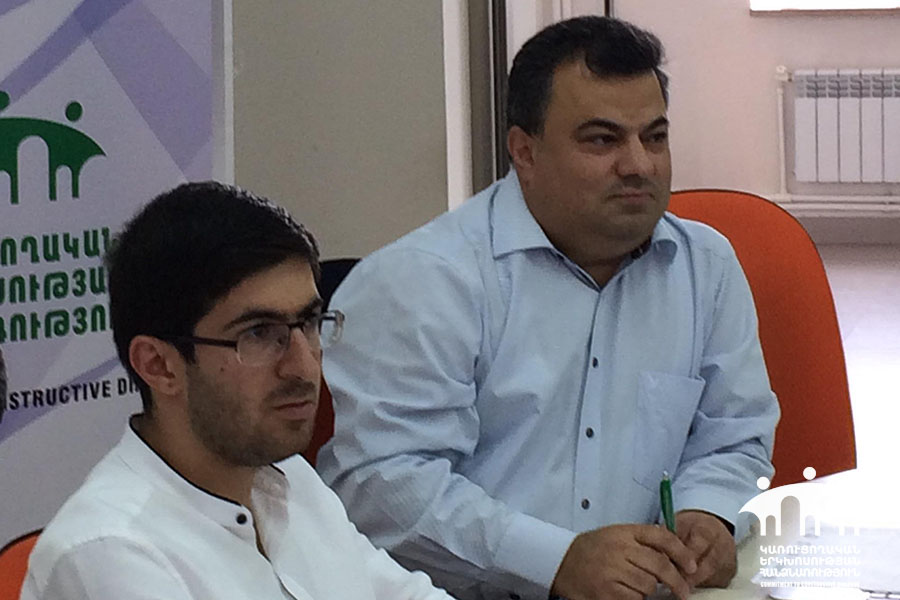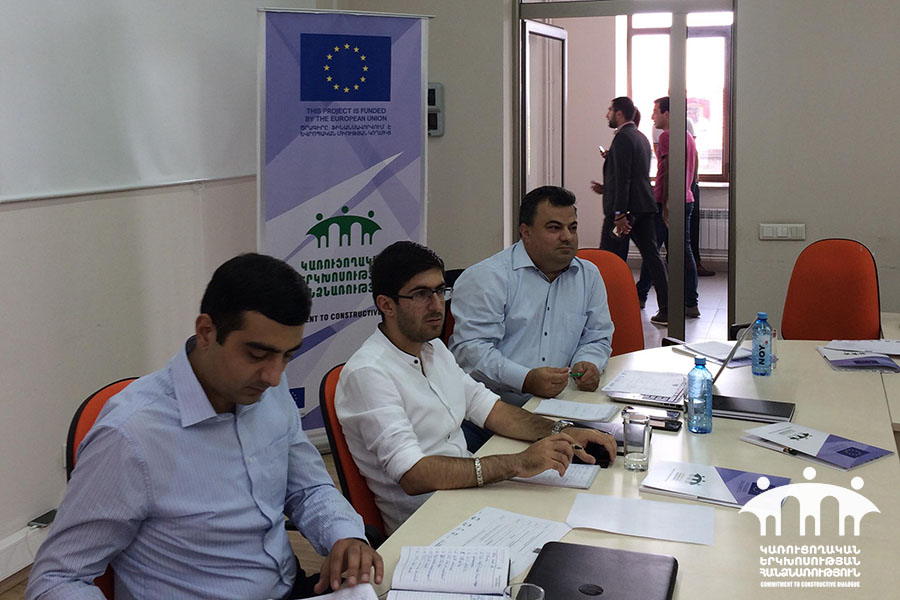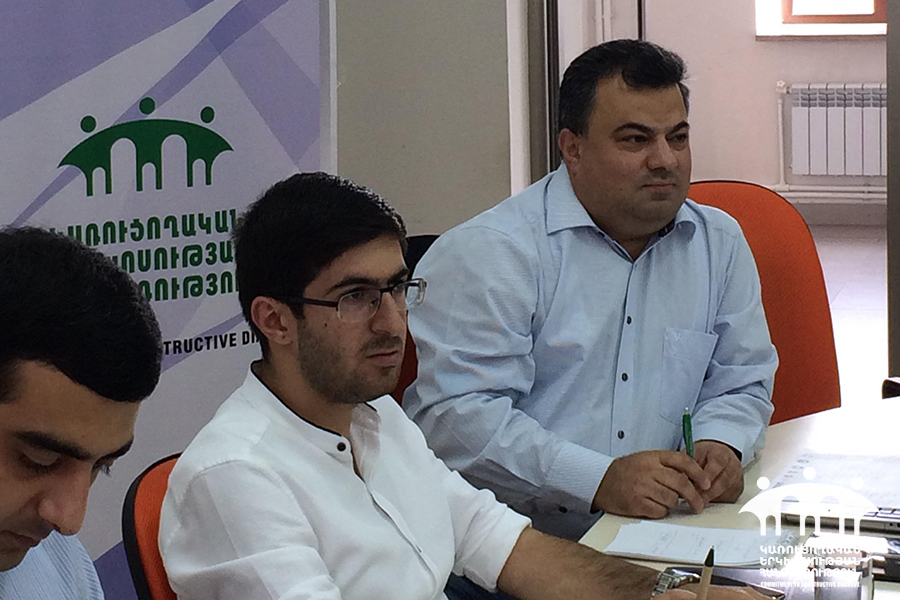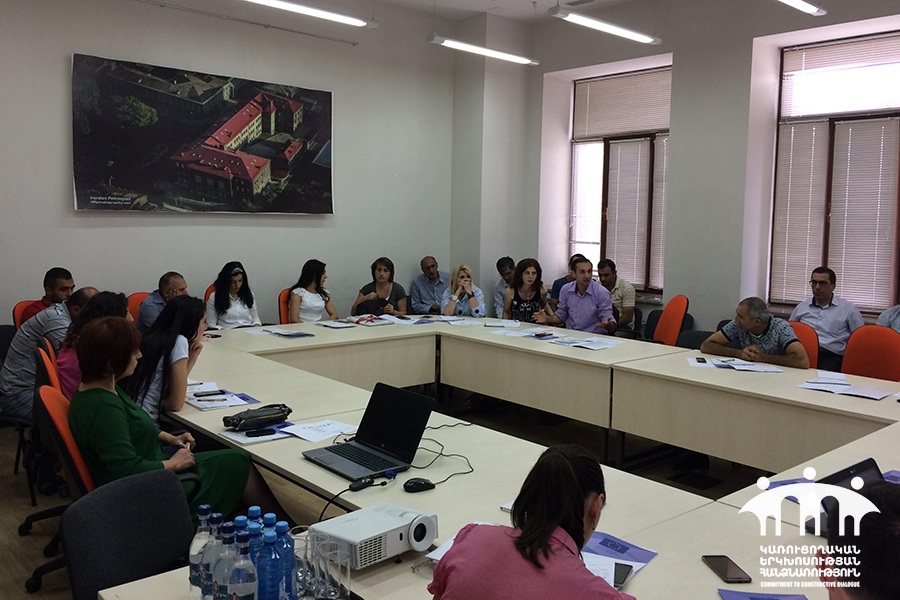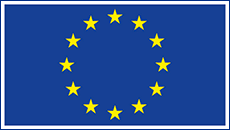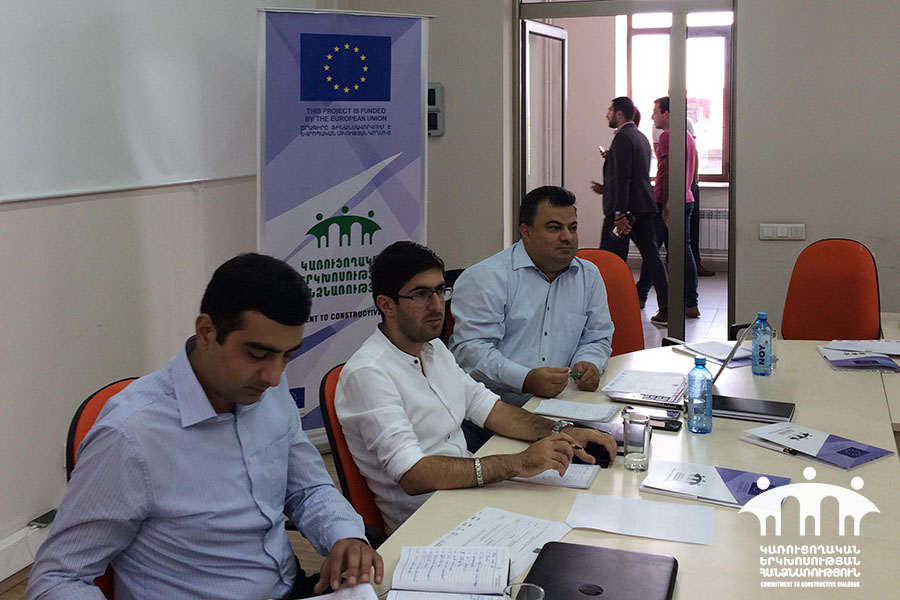
On 7 September 2018, an LSG-CSO forum was held in Gyumri in the scope of the “Commitment to Constructive Dialogue” project funded by the European Union. Among the issues discussed were those pertaining to the role of local government bodies in economic development, small and medium businesses, cooperation between NGOs and local government bodies.
The forum was organised by project consortium member SME Cooperation Association. Tigran Gasparyan, the Business and Related Sectors Coordinator of the project and the Executive Director of the SME Cooperation Association, noted among the most important sectoral issues the following ones: the options of possible changes in the tax legislation, specifically the most acceptable and applicable ones which would enable businesses to have an advantageous role and to make investments.
During the forum, Emin Yeritsyan, the Local Self Government Issues Coordinator of the project and the President of the Union of Communities of Armenia, mentioned that over the past years both the former and the current governments attached importance to economic development and the role of communities, adding, “However, we don’t see yet which path to take and where the intersection point for dialogue commitment should be, we don’t see the solutions yet. Here we have an important issue of dialogue and changing policies and behaviour. If we want to see mutual investments, as well as the commitment of the local authorities for the situation to be changed, we need to understand how ready we are, how the society sees such a role being played by small and medium businesses. This is a difficult conundrum where we should start finding solutions together.”
Gevorg Sargsyan, a representative from the Small and Medium Business Development Department of the Ministry of Economic Development and Investments, informed everyone that they had had meetings with business entities and accountants in almost all regions and had identified the 10 top important issues. In his words, “Among them are the income tax and the turnover tax threshold of the employees working with turnover tax. The issue of the threshold to at least remain unchanged is being discussed now, in addition to the 115 million threshold, so that the organisations with up to 24 million turnover are taxed with 25%. After communicating with businessmen, I have reached the conviction that no matter how the state toughens its regime, someone will always abuse it. Therefore, if we teach our businesses to work openly before the state, the latter will weaken its oversight mechanisms and an atmosphere of mutual trust will emerge.”
During the discussion, Emin Yeritsyan brought the following example: There are small German villages that have up to a thousand inhabitants and more than three thousand spots for overnight stay but manage to annually host around a million tourists.
The “Commitment to Constructive Dialogue” project is implemented with the financial support of the European Union by a Consortium of civil society organisations, which are the Armenian Lawyers’ Association (lead organisation), Agora Central Europe (NGO based in the Czech Republic), the Armenian Centre for Democratic Education-CIVITAS, the International Centre for Human Development, the SME Cooperation Association and the Union of Communities of Armenia.
The project aims to enhance the influence of civil society organisations (CSOs) and CSO coalitions/networks on public policies in Armenia. This will allow organisations that are already working in sectoral coalitions to access additional resources, new groups of civil society experts to come together and to encourage them to place their causes on the local and national policy agenda, to identify common concerns and priorities and approach government bodies with constructive and strategic policy engagement initiatives.
The project will provide sub-grants to CSOs and CSO coalitions for developing public policies and bringing significant changes in the 9 target sectors selected within the project, including those of justice, human rights, public finance management, business, education, and the social sector: social inclusion of children with disabilities, agriculture, economy, and energy.


